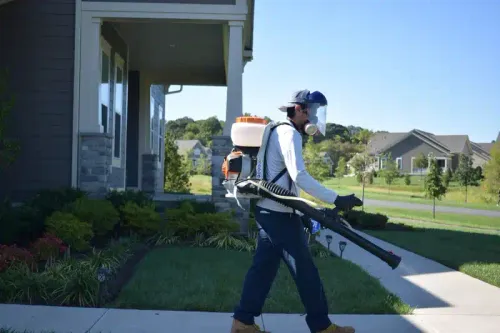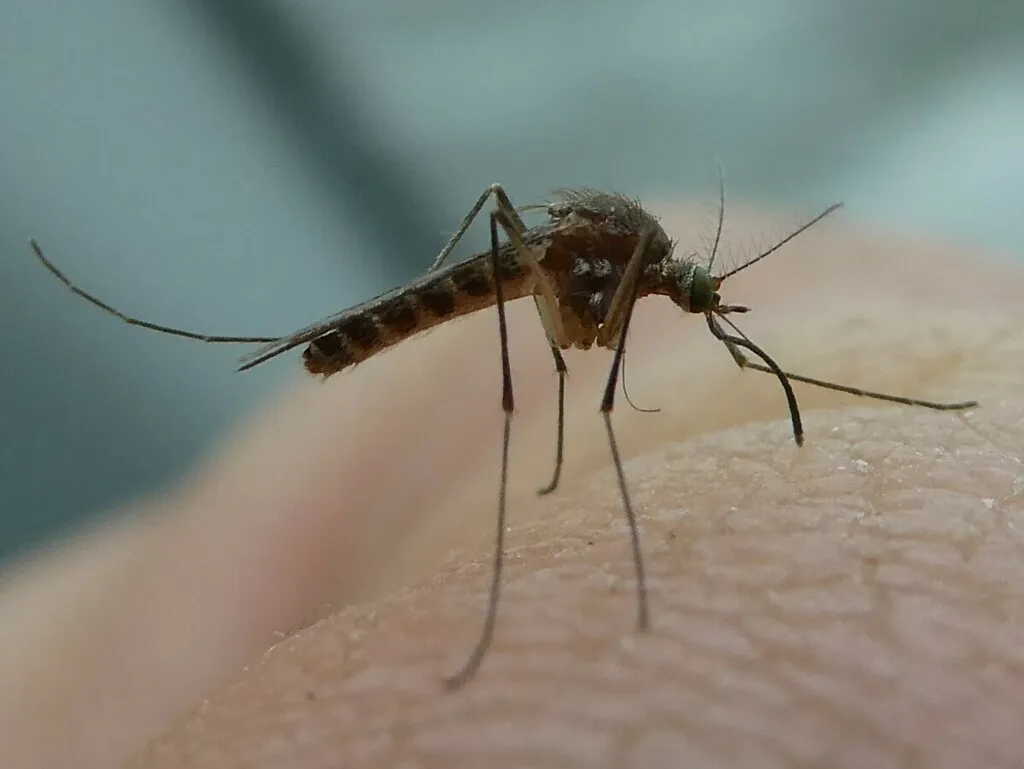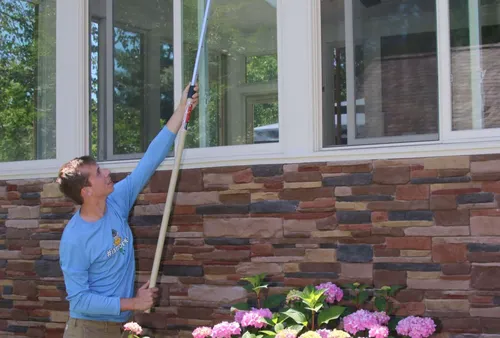College Park Mosquito Control
Take back your backyard from mosquitoes with monthly treatments backed by unlimited free callbacks and no binding contracts
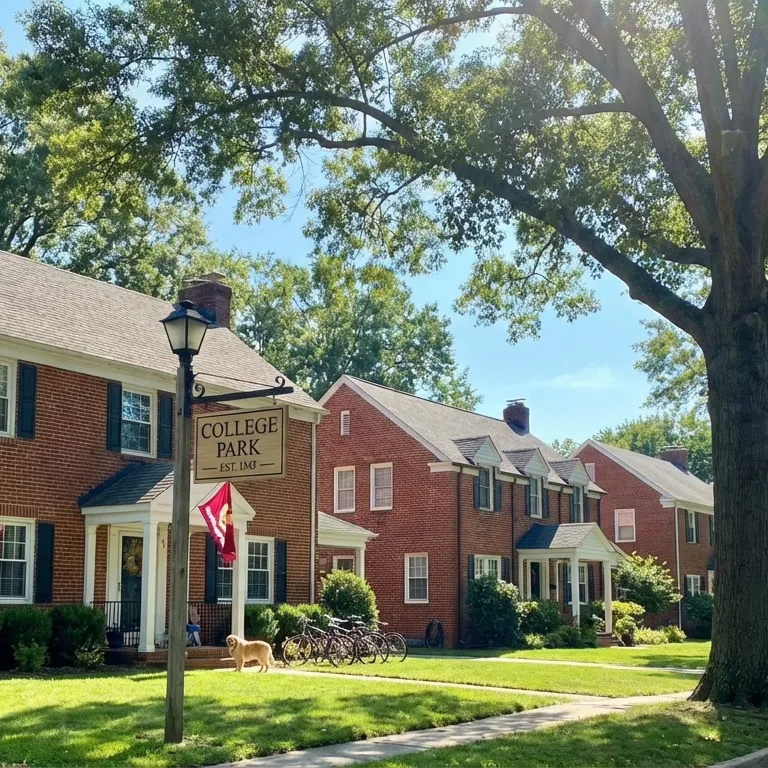





Family Owned
57 years of experience serving local homes with pets and kids.
Lower Risk Products
Our research team picked materials better for the planet & your home
No Contracts
We don't lock you in with paperwork. Stay because it works.
Why College Park Homeowners Choose Our Mosquito Control
If you live near Lake Artemesia, Paint Branch, or the creek corridors in College Park, you know mosquitoes can ruin your backyard from April through October. Standing water, humid summers, and thick tree cover in neighborhoods like Old Town, Calvert Hills, Berwyn, and College Park Estates all create ideal breeding conditions.
Better Termite & Pest Control has served the DC Metro area since 1968. Our College Park mosquito control program uses backpack sprayer treatments and In2Care technology together. We removed 9 harsh chemicals from our product line and replaced them with options like Essentria, Alpine, and EcoVia, all reviewed by our internal research team.
Every program includes unlimited free callbacks. If mosquitoes return between visits, we come back at no extra charge. There are also no binding contracts. Cancel anytime with 30 days notice.
Get a Free Quote
Choose the option that works best for you
Option 1: Call a Licensed Tech
Option 2: Submit Your Info to our Team
How Our College Park Mosquito Treatments Work
Every treatment starts with a thorough property walk-through. Our licensed technician identifies breeding sites, standing water, and shaded resting areas throughout your yard. Properties near Indian Creek, the Northeast Branch Anacostia, or the wooded edges of Greenbelt Park often have low spots and heavy canopy that need extra attention.
We use backpack mist blowers to treat shaded vegetation, ivy patches, under decks, and foundation plantings with an adulticide and insect growth regulator mix. This knocks down adults fast and stops larvae from developing.
Monthly visits run April through October. We rotate products through the season to prevent resistance. Between visits, the unlimited callback policy means you won't have to live with a mosquito problem until your next scheduled visit.
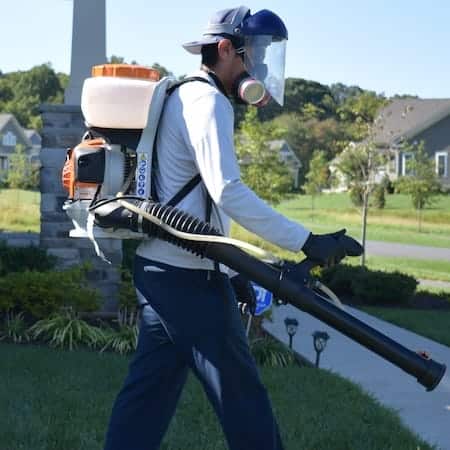
In2Care: No-Spray Mosquito Reduction
The In2Care mosquito control system is a low-spray alternative that works especially well in College Park's dense, shaded neighborhoods. The stations attract female mosquitoes to treated gauze strips. The gauze contains larvicide and an EPA-registered fungal agent called Beauveria bassiana.
Contaminated mosquitoes don't just die at the station. They carry the larvicide to other breeding sites they visit afterward. This spreading effect reaches hidden water sources in neighbor's yards, storm drains, and other spots our sprayers can't reach directly. The Asian tiger mosquito breeds in small hidden containers throughout College Park yards, which makes this spreading action especially effective.
In2Care stations are placed in shaded areas around your property. You can use them on their own or combine them with spray treatments for added coverage. Either way, the stations keep working between monthly visits.
Why College Park Residents Like In2Care
- Reaches cryptic breeding sites traditional spraying misses
- Targets mosquitoes specifically through their breeding behavior
- Works continuously between monthly service visits
- Ideal for yards near the Lake Artemesia and Paint Branch stream corridors
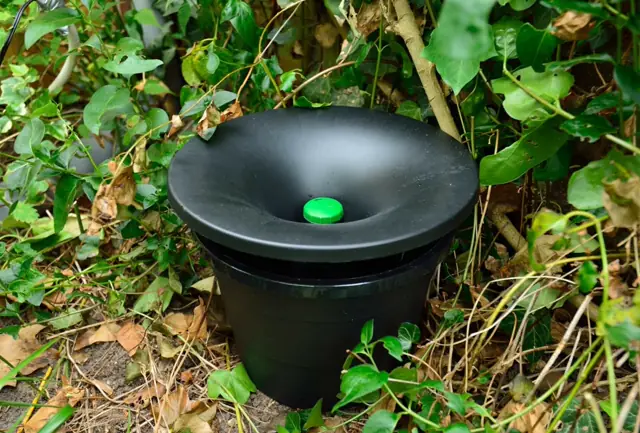
Tick Control for College Park Yards
College Park's parks, trails, and stream valleys bring wildlife into residential yards. Ticks come with them. Properties near Paint Branch Stream Valley Park, the Anacostia Tributary Trail, or Greenbelt Park have more tick pressure. Deer and mice move through those edges regularly.
Our LawnShield program covers both mosquito and tick control in one service. We apply granular tick treatments in March and November to hit peak activity periods. We also place Damminix Tick Tubes around your property. These are permethrin-infused cotton tubes that mice collect for nesting. The permethrin kills young ticks feeding on those mice, which cuts the tick population at its source.
Lyme disease, anaplasmosis, and Rocky Mountain spotted fever are all tick-borne illnesses common in our region. Regular treatment lowers the risk for your family and pets.
Bundled Protection
- One bill covers both mosquito and tick control through the LawnShield program
- 9 strategically timed treatments per year covering peak activity windows
- Unlimited callbacks included at no extra charge
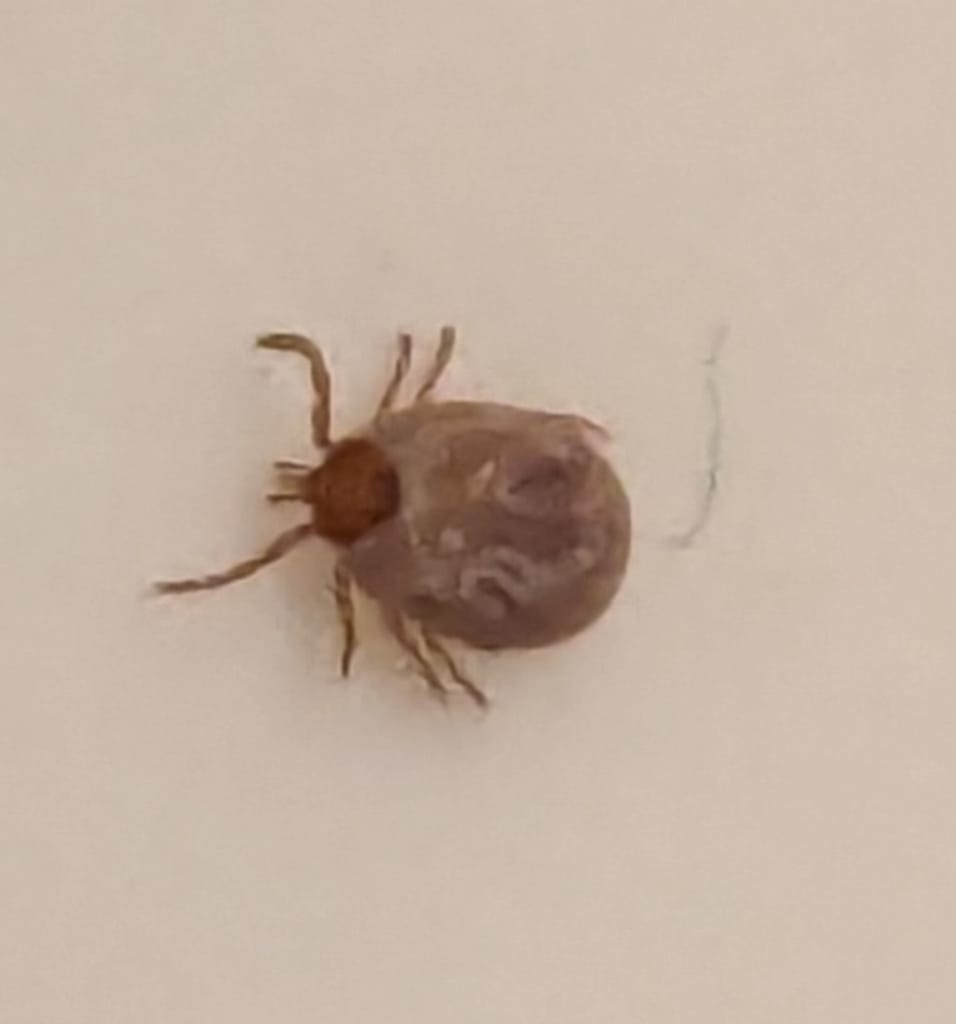
Local Mosquito Conditions in College Park
College Park sits in the Anacostia River watershed. Paint Branch, Indian Creek, and the Northeast Branch all converge near residential neighborhoods here. Lake Artemesia, a 38-acre lake on the east side of town, is prime habitat for Culex pipiens (the northern house mosquito). These breed in standing water and bite most at dusk.
The Asian tiger mosquito (Aedes albopictus) is a bigger problem in most College Park yards. It thrives in shaded, container-heavy yards like those in Old Town, Calvert Hills, Berwyn, and Hollywood. These mosquitoes breed in flower pots, clogged gutters, buckets, and even bottle caps. College Park gets about 43 inches of rain a year, with July highs near 89 degrees. Those numbers add up to multiple breeding cycles per season.
Summer thunderstorms hit College Park roughly one in every five days. Each storm can leave standing water in low spots that produces mosquito swarms within a week. Yards in Lakeland, College Park Estates, and Yarrow near the creek corridors are hit hardest after heavy rain.
Our Step-by-Step Treatment Process
Step 1: Property Inspection. Your registered technician walks your entire yard. They map mosquito hot-spots, note breeding sites, check for drainage problems near the foundation, and flag shaded vegetation used for daytime resting.
Step 2: Barrier Application. We use backpack mist blowers to treat vegetation up to 8 feet high. Treatment targets the undersides of leaves, foundation plantings, fence lines, and the edges between your yard and natural areas, all spots where mosquitoes rest.
Step 3: Larvicide Treatment. Any standing water that can't be removed, like decorative ponds, birdbaths, or drainage features, gets a larvicide application. This stops mosquito development before adults emerge.
Step 4: Service Report. After every visit, we email you a report with exactly what was treated and which products were used. No guessing about what happened on your property.
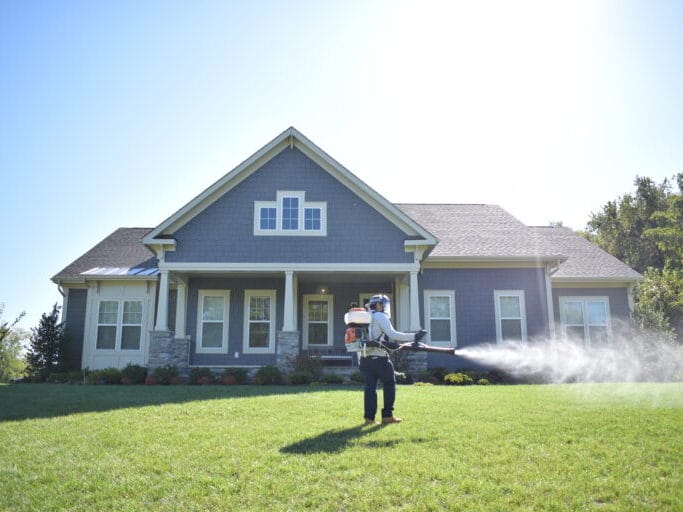
What College Park Area Homeowners Say
"I've had nothing but great experiences for 3 years now. Their consistent, reliable service really stands out for me, and everyone is always kind and easy to talk to. I also like that they're a local, family-run business. Kamaal is fantastic—he really listens to my concerns and works with me to come up with the best plan for whatever pest issues I'm dealing with."
"I love Darren over at Better Termite. He is always so attentive and kind, and really goes, IMO, out of his way to do a fantastic job. And I am so happy that I had NO MOSQUITOES this summer in my backyard in spite of the fact that there is a drainage area right behind my house, and that is 100% because of Better Termites services."
"We've had a subscription service with this company for yrs, since moving into our current house, and realizing it was rather...spidery. But NO MORE! Better Termite uses pet-friendly, but not spider-friendly products, and we are now creepy crawly-free! Over the years, they've also tackled ants, bees, and HORRIBLE paper wasps!"
"We had a bad cockroach problem - we knew it was bad because of all the baby cockroaches we spotted. It took a while but Better Termite ultimately solved it and our house is cockroach free. I signed up for a plan, but ultimately when I got laid off I had to cancel it. Fortunately their customer service, Cindy in particular, was quick to help out and made it pain free."
"I want to take a moment to recognize the exceptional service I received from Mr. Hussam. From the start, he was highly professional, personable, and attentive to my needs. What truly stood out was his ability to recall our previous conversations, making the experience feel personalized and valued."
"I've had nothing but great experiences for 3 years now. Their consistent, reliable service really stands out for me, and everyone is always kind and easy to talk to. I also like that they're a local, family-run business. Kamaal is fantastic—he really listens to my concerns and works with me to come up with the best plan for whatever pest issues I'm dealing with."
"I love Darren over at Better Termite. He is always so attentive and kind, and really goes, IMO, out of his way to do a fantastic job. And I am so happy that I had NO MOSQUITOES this summer in my backyard in spite of the fact that there is a drainage area right behind my house, and that is 100% because of Better Termites services."
"We've had a subscription service with this company for yrs, since moving into our current house, and realizing it was rather...spidery. But NO MORE! Better Termite uses pet-friendly, but not spider-friendly products, and we are now creepy crawly-free! Over the years, they've also tackled ants, bees, and HORRIBLE paper wasps!"
"We had a bad cockroach problem - we knew it was bad because of all the baby cockroaches we spotted. It took a while but Better Termite ultimately solved it and our house is cockroach free. I signed up for a plan, but ultimately when I got laid off I had to cancel it. Fortunately their customer service, Cindy in particular, was quick to help out and made it pain free."
"I want to take a moment to recognize the exceptional service I received from Mr. Hussam. From the start, he was highly professional, personable, and attentive to my needs. What truly stood out was his ability to recall our previous conversations, making the experience feel personalized and valued."
Seasonal Mosquito Control Calendar for College Park
March: Granular tick treatments target the spring surge period before ticks reach peak activity. This early treatment protects your family as outdoor weather returns to the College Park area.
April through June: Mosquito treatments begin as temperatures climb. Early visits set perimeter barriers and clear breeding sites in neighborhoods like Crystal Springs, Sunnyside, and College Park Woods. Getting ahead of populations now pays off in July.
July and August: Peak mosquito season. Mid-summer treatments add growth regulator refreshes as breeding speeds up in the heat. Properties near Lake Artemesia and the stream corridors get the most use of the callback option during these months.
September and October: Late-season treatments stop overwintering populations from getting established. Fall applications target mosquitoes that would otherwise survive into the following spring.
November: Final granular tick treatment reduces overwintering tick populations, completing the year-round protection cycle.
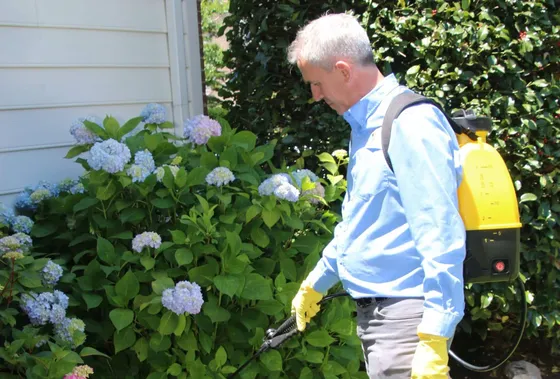
Serving College Park & Surrounding Prince George's County
From Old Town to College Park Estates, Lake Artemesia to Berwyn, we protect College Park homes from mosquitoes.
